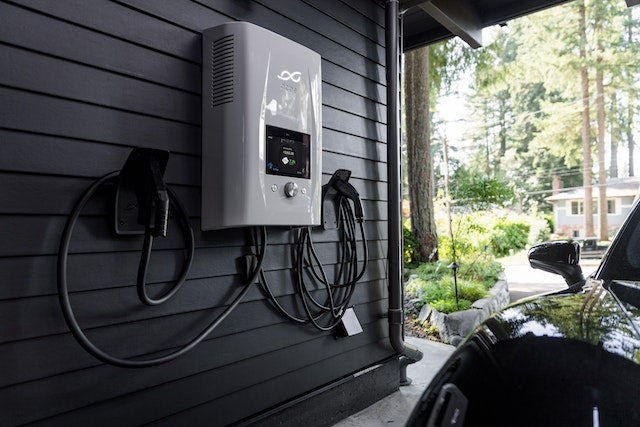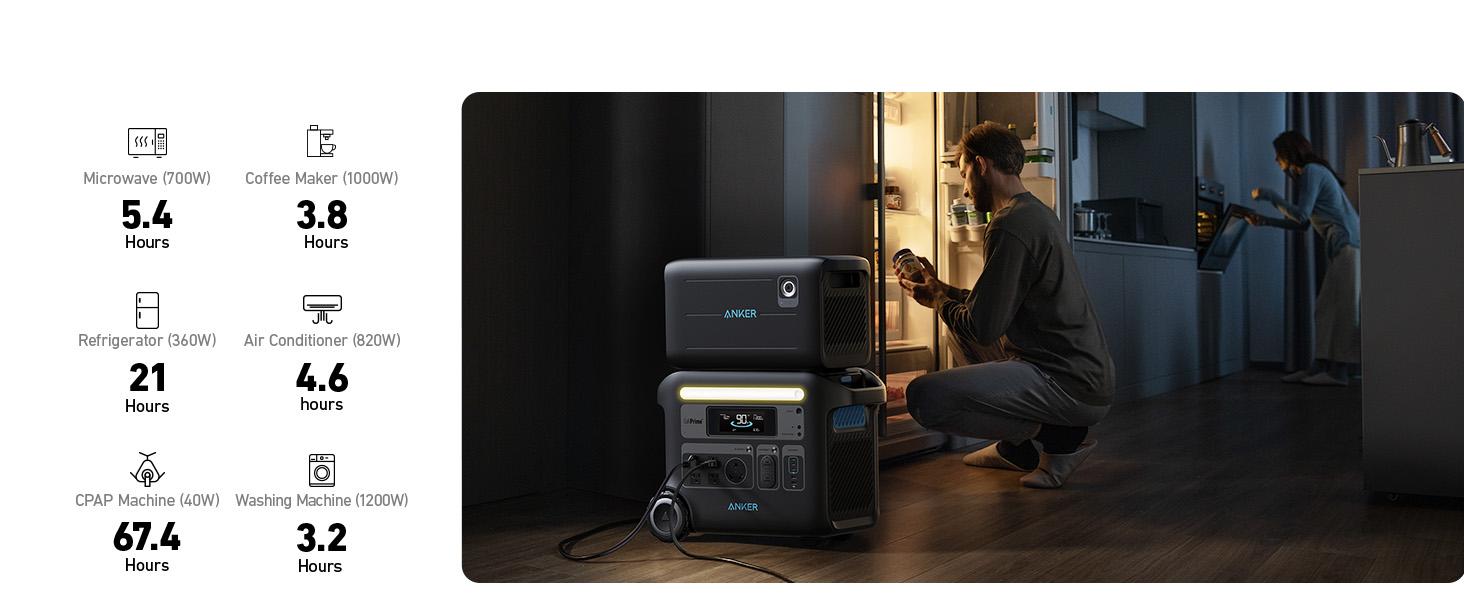
Home Battery Backup Systems: Everything You Need to Know
In an increasingly digital world, our reliance on electricity has never been more profound. From powering essential appliances to keeping us connected online, a constant and reliable supply of power is crucial.
However, as weather events grow more severe and power outages become more common, the interest in home battery backup systems has surged. These systems can provide peace of mind, energy independence, and even significant savings on energy bills.
But what exactly are they? How do they work? And how much do they cost?

What is a Battery Backup and How Does It Work
A home battery backup is a system that stores energy generated from your solar panels or from the grid when electricity is available.
The stored energy can then be used to power your home during times when electricity is not available or during peak demand periods when electricity prices are higher.
Components of a Battery Backup System
Home battery backup systems typically consist of three main components:
- Battery:The battery is the most crucial component of a home battery backup system. It stores the energy generated from your solar panels or the grid when electricity is available.
- Inverter:The inverter converts the DC electricity stored in the battery to AC electricity that your home appliances can use. It also regulates the flow of electricity between the battery, solar panels, and the grid to ensure that your battery is charged and ready when needed.
- Monitoring System:The monitoring system tracks energy usage and battery status. It also provides information about the amount of energy stored in the battery and how much energy is being used in real time.
How it Works
- Charging the Battery:When electricity is available, the battery backup system charges the battery. This can be done in two ways:
- From the Solar Panels: If you have solar panels installed, the battery backup system charges the battery using the energy generated by the panels.
- From the Grid: If you do not have solar panels or if there is not enough sunlight to charge the battery, the battery backup system charges the battery from the grid.
- Using the Stored Energy:When the power goes out, the battery backup system automatically switches to battery power. The inverter converts the DC electricity stored in the battery to AC electricity that your home appliances can use.
- Monitoring Energy Usage:The monitoring system tracks energy usage and battery status. It also provides information about the amount of energy stored in the battery and how much energy is being used in real-time.
- Returning to Normal Operation:When the power is restored, the battery backup system automatically switches back to grid power. The battery backup system then begins to charge the battery again for future use.
Benefits of Investing in Home Battery Backups
Investing in a home battery backup system comes with several benefits that go beyond just having power during blackouts. Here are some of the most significant benefits of investing in a home battery backup system:
1. Uninterrupted Power Supply
One of the most significant benefits of a home battery backup system is that it provides an uninterrupted power supply, even during blackouts. With a home battery backup system, you can continue your daily activities without any interruptions.
This means that you won't have to worry about losing important work or data during a power outage, and your home's security system and other critical systems will continue to function without any issues.
2. Cost Savings
By using stored energy during peak demand periods, you can save on your electricity bills. Many energy providers offer time-of-use pricing plans, which means that electricity costs more during peak demand periods.
By using a home battery backup system to store energy during off-peak periods, you can use that stored energy during peak periods when electricity is more expensive, which can result in significant cost savings over time.
3. Environmental Benefits
Using energy stored in a home battery backup system can reduce your reliance on the grid and lower your carbon footprint. By storing energy from solar panels or the grid during off-peak periods, you can reduce your overall energy consumption during peak periods. This not only saves you money on your electricity bills, but it also helps to reduce your overall environmental impact.
4. Increased Reliability
Home battery backup systems provide increased reliability and peace of mind, especially for those living in areas prone to power outages. With a home battery backup system, you don't have to worry about losing power during critical moments, such as during a storm or other emergency.
Furthermore, many home battery backup systems come with monitoring systems that can alert you if the battery is running low or needs maintenance, ensuring that you always have a reliable source of backup power.
5. Potential Return on Investment
Finally, investing in a home battery backup system can increase the value of your home and potentially provide a return on investment. As energy costs continue to rise, home battery backup systems are becoming increasingly popular, and having one installed in your home can be an attractive selling point if you ever decide to sell your home.
Types of Battery Backups for Home Use
There are several types of battery backup systems available for home use, including:
- Lead-Acid Batteries:These are the oldest type of battery and are commonly used in cars. They are affordable but have a shorter lifespan and lower energy density compared to other types of batteries.
- Lithium-Ion Batteries:These are the most common type of battery used in home battery backup systems. They are lightweight, have a longer lifespan, and higher energy density than lead-acid batteries.
- Flow Batteries:These batteries use a chemical solution that flows through the battery to store and release energy. They have a longer lifespan than other types of batteries, but they are more expensive.
- Saltwater Batteries:These batteries use a saltwater solution to store and release energy. They are non-toxic and have a longer lifespan than other types of batteries.
Factors To Consider When Choosing a Battery Backup
Choosing the right home battery backup system can be a challenging task, given the range of options available in the market. Here are some of the most critical factors to consider when choosing a home battery backup system:
1. Battery Capacity
The battery capacity is the amount of energy that the battery can store, and it is measured in kilowatt-hours (kWh). When choosing a home battery backup system, you should consider your energy needs and choose a battery with the appropriate capacity. A larger battery capacity can provide more backup power, but it also comes with a higher price tag.
2. Power Output
The power output is the amount of power that the battery can supply at any given time, and it is measured in watts (W). You should choose a home battery backup system with a power output that matches the power needs of your home. If you have a lot of high-energy appliances, such as air conditioners or electric heaters, you will need a backup system with a higher power output.
3. Lifespan
The lifespan of the battery is how long it will last before needing to be replaced. You should choose a home battery backup system with a long lifespan to ensure that you get the most out of your investment. Many home battery backup systems come with warranties that can give you peace of mind and protect your investment.
4. Brand Reputation
Brand reputation is an essential factor to consider when choosing a home battery backup system. You should choose a reputable brand with a proven track record of producing reliable and high-quality products. One such manufacturer is Anker, which offers a wide range of home battery backup systems. Its best-selling product the Anker PowerHouse 767 is a portable power station with a capacity of 2048Wh that can power up to 12 devices simultaneously. It has four AC ports with a wattage of up to 2400W, three USB-C charging ports, two USB-A ports, and two car outlets. The Anker PowerHouse 767 comes with a monitoring system that tracks energy usage and battery status and provides information about the amount of energy stored in the battery and how much energy is being used in real-time.

Moreover, the Anker PowerHouse 767 comes with a 5-year full-device warranty, which is superior to the average 2 years warranty offered by other manufacturers.
This power station is also designed to last over a decade, thanks to its proprietary long-lasting technology—InfiniPower—coupled with LiFePO4 batteries and ultra-durable electronic components.
5. Cost
The cost of a home battery backup system can vary significantly depending on the battery capacity, power output, and brand reputation.
You should consider your budget and choose a system that meets your energy needs and fits within your budget. While a more expensive system may offer more features and capabilities, it may not always be the best option for your specific needs.
Conclusion
Power outages can be more than just an inconvenience; they can disrupt our lives and even pose serious risks. With the increasing frequency of extreme weather events and the aging power grid infrastructure, the need for reliable, on-demand power has never been more critical.
Home battery backup systems offer a promising solution, providing households with energy independence, resilience, and even potential savings.
By understanding the ins and outs of these systems, you are now equipped to make an informed decision on whether a home battery backup system is right for you.
Remember, a world powered by clean, reliable, and renewable energy is not just a dream—it's a future we can all contribute to, one home at a time.
FAQ
How much battery do I need to power my house?
Each household is as unique as the people living in it, and the amount of battery power you'll need to support your home depends on a variety of factors.
On average, a typical American home uses about 30 kWh of electricity per day. However, you'd likely need a more substantial capacity if you want your battery to fully support your home's energy needs during an outage. A battery storage system of around 10 kWh is a good starting point for a medium-sized, energy-efficient home.
However, for larger homes or those with high energy usage, such as homes with air conditioning or electric heating systems, you might require upwards of 20 kWh.
As a general rule of thumb, the battery capacity should be around 50% to 100% of your daily energy usage.
How much is a battery bank for a house?
The cost of a battery bank for a house can vary significantly depending on the battery capacity, power output, and brand reputation.
A small battery bank with a capacity of 5 kWh can cost around $5,000, while a larger battery bank with a capacity of 20 kWh can cost upwards of $20,000.
However, it is essential to consider the long-term savings and benefits of having a home battery backup system, such as reduced electricity bills, increased home value, and peace of mind during power outages.















